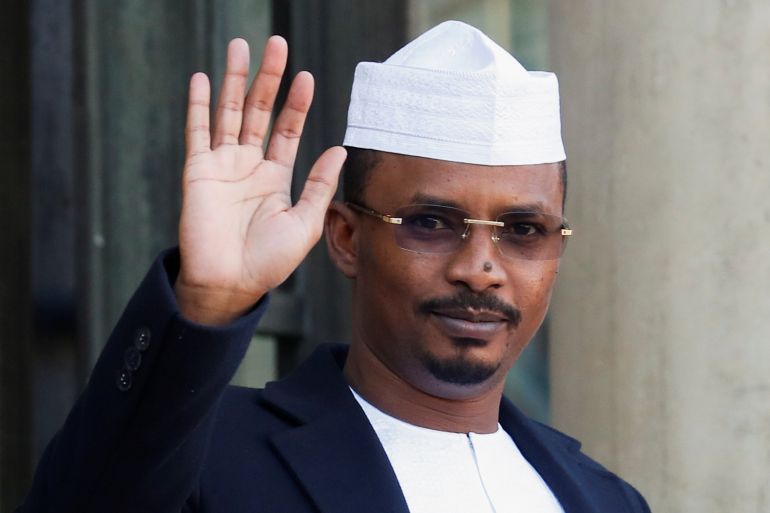Chad holds referendum on new constitution amid opposition protests
For the voters, the referendum marks a long-awaited return to civilian rule since the April 2021 military takeover.

Chadians have started voting on a new constitution as a stepping stone to next year’s election that aims to mend political and community division in the oil-producing, yet impoverished and fragmented country.
For the 8 million registered voters, Sunday’s referendum marks a long-awaited return to civilian rule since the April 2021 military takeover after the previous president Idriss Deby was killed by rebels.
Keep reading
list of 4 itemsLibya’s LNA launches operations against Chad rebels along border
How much of a threat is Sudan’s conflict to Chad?
In Chad, freed rebel prisoners call for leader’s release
But the opposition wants more autonomy and says the vote is just a farce for the military leadership to hold on to power.
‘Yes’
The army had suspended the constitution after the death of President Idriss Deby and dissolved the parliament. Deby’s son, Mahamat Idriss Deby, was then installed by the military as interim president at the helm of a Transitional Military Council (TMC).
Chad has had little stability since its independence in 1960.
Deby, 38, promised elections in 18 months when he seized power in April 2021. But his military administration has retained the power to extend its “transitional” rule by 18 months.
The proposed constitution would indeed establish autonomous communities with local assemblies and councils of traditional chiefdoms among other changes.
Haroun Kabadi, coordinator of groups voting “Yes”, said the new constitution offers more independence as it would allow Chadians to choose their local representatives and collect local taxes for the first time.
“These people talking about a federation simply want to divide Chadians into micro-states and fuel hatred between communities,” he said.
‘No’
The opposition, however, has faced arrest, intimidation and threats for more than a year, yet their message is unified.
“It is time to let the population organise into federated states and steer their own development,” Brice Nguedmbaye Mbaimon, who coordinates a coalition voting “No”, said.
Chad had experienced a unitary state for over 50 years without tangible progress, he said.
Protests and demonstrations demanding a return to civilian rule have been regularly repressed with violence by security forces which often turned deadly.
‘Never’
Others are calling for a boycott altogether saying that the referendum is simply a ploy by the military to consolidate more power. Prime Minister Albert Pahimi Padacke said the military rulers had too much control over the referendum process.
“This is not fair, and it is not democratic. That’s why we have called on Chadians not to participate in this farce.”
A central concern is that the referendum could help cement the power of the military leader, Deby’s son Mahamat Idriss, who has already extended a proposed 18-month transition to democracy.
“The pattern of delay and obfuscation echoes the long-honed tactics of Idriss Deby who came to power by force in 1990 and then held on to it for three decades,” analysts at the Africa Center for Strategic Studies said.
“They’re all the same, whether they’re campaigning for ‘yes’ or ‘no’. They’ve shared the money out between themselves,” Badono Daigou for the GCAP opposition platform told a rally.
“The result is a foregone conclusion. The ‘yes’ vote will win.”
President Deby was the first to place his vote in one polling station in N’Djamena, not far from the presidential palace.
“Each ballot placed in the ballot box is a further step towards stability and prosperity for our country,” he said, after voting.
Polls will close at 5pm (16:00 GMT) local time.